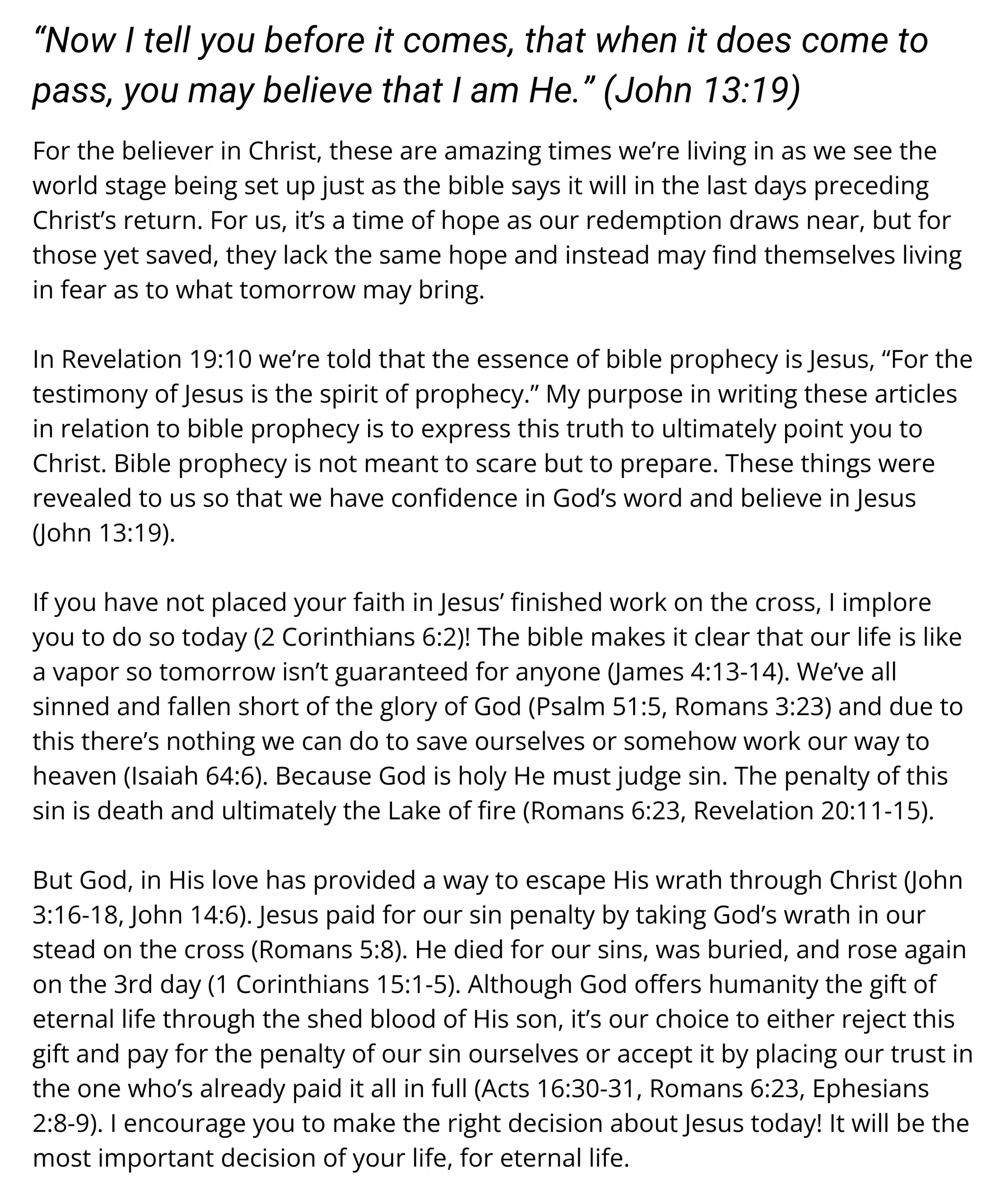South Dakota Governor Kristi Noem just vetoed a little-publicized, but extremely important bill that would have made it easier for the federal government to implement a central bank digital currency (CBDC). Stopping House Bill 1193 helps fend off one of the biggest threats to freedom facing Americans today.
Digital currencies such as cryptocurrency (crypto) and central bank digital currency (CBDC) are becoming more of a talking point today. Cryptocurrency has been gaining popularity these past few years with coins such Bitcoin, Ethereum, and dogecoin, many heralding the technology as a bastion of anonymity as it’s decentralized, meaning it’s not issued or regulated by one entity.
CBDCs, however, are centralized and would not guarantee the same level of privacy as crypto. By definition, CBDCs are a type of digital currency issued and regulated by the central bank of a nation. Many nations around the world are at least researching the feasibility of a CBDC while others are in the pilot or implementation stage.
Some of you reading this are already familiar with these facts but it’s important to restate them nonetheless as it’s not only important to – I believe – have a basic understanding of these technologies as they increase in popularity (or disdain), but to also understand their differences and what they can do. I’ll come back to these distinctions later in the article.
I’ve often noted in my previous articles on CBDCs that I believe what we’re seeing take place is a “CBDC race” of sorts. Different nations have their differing reasons to research and potentially go down the path of implementing the technology, but despite what the reason may be, it’s all ultimately hastening this CBDC race.
One of these reasons would be to not be left behind, the US being in this bucket. My article, China’s Digital Yuan causing US Lawmakers to Speed up Efforts Towards a Digital Dollar, went into this point. Due to this being the case, it shouldn’t surprise us if we continue to see initiatives to either create a digital dollar in the future or at least lay the groundwork for it. For one, we know that the Biden Administration supports the research and development of a U.S. Central Bank Digital Currency which I reported on here.
House Bill 1193
But we’re not just seeing this groundwork being laid on a federal level but also on a state level. Enter, House Bill 1193. In a March 20th, article from Fox News, Justin Haskins brought to our attention that S. Dakota Governor, Kristi Noem, vetoed a bill that would’ve made it easier for the federal government to implement a CBDC.
This is great news in my opinion and I’d love to see more of this, but similar legislation is being offered in over 20 other states. This point can’t be emphasized enough as it shows, again, the groundwork being laid in the nation already for a possible (and I believe at this point, inevitable) creation of a digital dollar.
“Identical legislation is being offered in more than 20 other states, and many lawmakers — Republicans and Democrats alike — have continued to move the bills forward despite claiming in many cases to be opposed to the development of a digital dollar. Similar legislation is now being considered in Arkansas, Montana, New Hampshire, North Dakota, Tennessee, Texas, and California, among many other states.” (Fox News)
According to Haskins, bills like H.B. 1193 are part of a nationwide effort to “amend various parts of the Uniform Commercial Code (UCC). The UCC is not a federal law, but rather a state law passed in all 50 states. It’s been around for more than a century, and it continues to play an important role in ensuring that commercial activity operates smoothly across state lines.” (Fox News) On the surface, that in and of itself isn’t bad. It’s some of the provisions in the bill that would make the use of a CBDC easier that are drawing questions.
Haskins notes that the existing UCC already has provisions that would allow the use of a CBDC in many commercial scenarios but believes lawmakers should strive to support amendments that would discourage the eventual implementation and use of the technology, not encourage it.
“It’s important to note that the proposed updates to the UCC would not establish a digital currency, nor require its creation in the future. It would, however, help lay the foundation for a central bank digital currency or other government-mandated digital currency in the future. The bill would have made it easier to use CBDCs in certain kinds of transactions and included absolutely no provisions that would forbid the use of a programmable central bank digital currency as it applies to the commercial code. ” (Fox News)
Beyond the fact that the bill contained provisions that would lay the groundwork for the use of a CBDC, it would also allow for said CBDC to be programmable. In section 45 of the bill, it includes a provision that would allow for a future CBDC to be limited, programmable, or allow for the loss of control by a system or protocol stating, “a power is exclusive … even if: (1) The electronic money, a record attached to or logically associated with the electronic money, or a system in which the electronic money is recorded, limits the use of the electronic money or has a protocol programmed to cause a change, including a transfer or loss of control.” (Fox News)
But that’s not all. The amendments would’ve also made the use of cryptocurrencies such as Bitcoin, more difficult. “Another section would prevent all or nearly all existing cryptocurrencies and digital currencies from being considered “money” under the UCC, including Bitcoin. Thus, only a government-created currency could ever be considered electronic money under H.B. 1193 and similar bills offered in numerous other states.” (Fox News)
Why does this matter? Earlier in the article I differentiated cryptocurrency and CBDCs. Cryptocurrencies essentially allow for anonymity and encourages freedom while CBDCs don’t. With this in mind, it should come as no surprise as we witness the simultaneous crack-down by various nations (including the US) on cryptocurrency, but yet the support and implementation of CBDCs.
For some, this seems like diametrically opposing viewpoints. How can a nation both discourage the use of digital currencies but yet strive to create its own? Simple. It all comes down to what these digital currencies do and allow. Crypto takes away financial power from the government, giving it to the people, while CBDCs do the opposite; they take away financial power from the people giving it instead, to the government.
So by both making it more difficult to use crypto but yet easing the use of a future CBDC, you’re getting rid of any possible competition and making it so that a CBDC would be the only form of a digital currency to use. As Haskins made clear earlier in his article, similar legislation is being offered in many other states across the US. So although this may be regarded as a small victory for S. Dakota, at least for now, it begs the question what lawmakers of other states will do or won’t do with similar legislation.
Ultimately, this is all headed somewhere. In my article, What is the Prophetic Significance of Digital Currency?, I elaborated on why I believe this digital currency race is prophetically significant. I believe that the groundwork is being laid for the mark of the beast system that will come to fruition during the tribulation. My purpose isn’t to state that CBDCs or other forms of digital currency is the mark of the beast.
My goal instead is to bring headlines such as this to your attention, and in doing so show you the trend of things and ultimately point to scripture. This should serve as a means of encouragement for the believer as we see our blessed hope draw near (Titus 2:13) and evidence for the skeptic that God’s word is true and should be trusted.
Politicians are quietly preparing for a digital dollar. It’s not good for your freedom
Fox News: In choosing to veto the legislation, Noem, a Republican, bravely took on her own party, which dominates South Dakota’s legislature. Hopefully, lawmakers in other states will soon take notice. Identical legislation is being offered in more than 20 other states, and many lawmakers — Republicans and Democrats alike — have continued to move the bills forward despite claiming in many cases to be opposed to the development of a digital dollar.
Similar legislation is now being considered in Arkansas, Montana, New Hampshire, North Dakota, Tennessee, Texas, and California, among many other states.
The attempt to pass bills like H.B. 1193 nationwide is part of an effort to amend various parts of the Uniform Commercial Code (UCC). The UCC is not a federal law, but rather a state law passed in all 50 states. It’s been around for more than a century, and it continues to play an important role in ensuring that commercial activity operates smoothly across state lines.
Because the nature of commerce is always changing, the UCC must be updated on occasion, and that’s exactly what bills like this aim to do.
Many of the proposed amendments to the code in H.B. 1193 are valuable, but the drafters of the legislation also included a few extremely troubling, completely unnecessary, provisions. Those would make it easier for consumers to use a programmable, traceable, controllable central bank digital dollar in certain kinds of commercial activities, should the federal government choose in the future to create one.
The existing UCC already includes provisions that would effectively allow central bank digital currency to be used in many commercial arrangements. Instead of making it easier to use CBDCs, which, for the most part, do not yet exist in any major economy in the world, the UCC should be amended to make it much harder. Rather than encourage the use of CBDCs, lawmakers should be discouraging it. Read More

Sources
- Politicians are quietly preparing for a digital dollar. It’s not good for your freedom (March 20th, 2023) – Fox News
- Gov. Kristi Noem: This idea is paving the way for the government to control currency (March 10th, 2023) – Fox News




 Support the Ministry
Support the Ministry